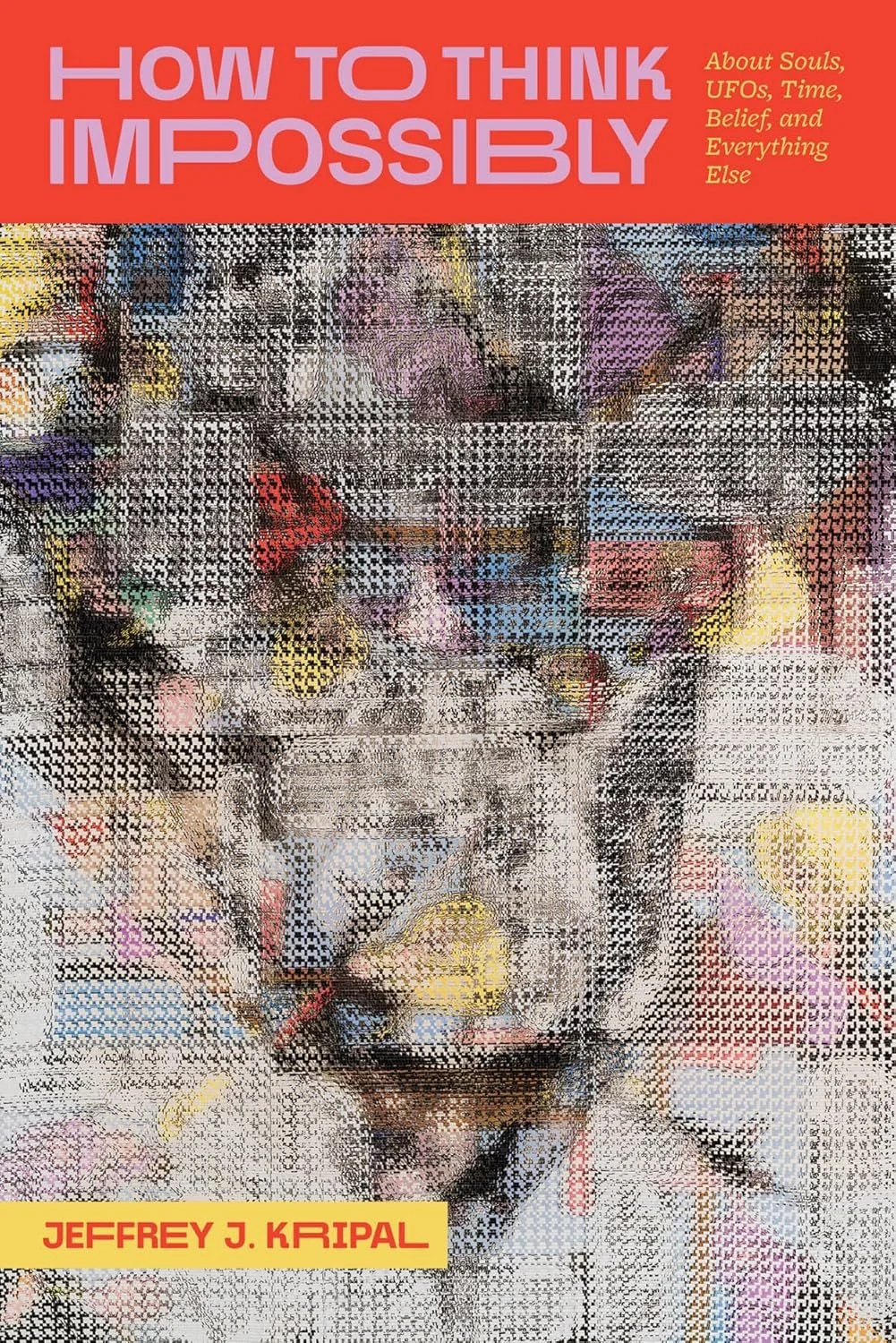Psychedelics Alter Belief, Not Just Perception
Being #PsychedelicPositive, The Mission Within
Of Night and Light
Last week, the beloved community of psychedelic researchers, practitioners, founders, funders, healers, artists and musicians met in Denver for the MAPS conference, Psychedelic Science 2025. It was joyful in some ways, because of the general way of being of the community there (which I would characterize as foundationally kind, open, conscientious- and explosively creative) and careful, coming off of the recent hiccups with the FDA on the long fought for revision of the status of #MDMA as a legal medicine, and the general legal status of Psychedelics. There were many psychedelic churches and clinics represented, as ways to protect both the cognitive and physical liberties of psychonauts. I was thrilled to hear of healing outcomes across the domains of everything from struggling marriages, terminal diagnoses, to long COVID.
One of the most moving programs at the conference was the long form pre-release screening Of Night and Light: The Story of Iboga and Ibogaine, by the incredible award-winning documentary filmmaker Lucy Walker, and the panel conversation that surrounded it, which included W. Bryan Hubbard of the American Ibogaine Foundation, brain researcher Dr. Nolan Williams from Stanford, and Dr. Martin Polanco, founder of the Mission Within.
Iboga is the foundational brain-rewiring psychedelic medicine of indigenous Gabon, and has demonstrated incredible results for addiction, traumatic brain injury, PTSD and more. This has been a long time coming, with over 50 years of (often suppressed) research. Our friends Elizabeth Bast and Chor Boogie , the founders of SoulCentro, a medically guided program in Costa Rica, have been apprenticing with this medicine with the Gabonese for decades. They even wrote a book on it, focusing on the medicine as a counterweight to addiction, in 2016. Texas just authorized $50M to implement programs for this medicine, and we anticipate many more states will follow.
Ibogaine is one of the primary medicines used by the physicians and care team at The Mission Within, which is featured in the film, and whose board I am on. The Mission Within serves veterans, first responders, those with PTSD from sexual trauma as well as those in unmanageable grief, who attend long preparation periods, and participate in supervised collective integration after their retreat experience. I did a podcast episode with the President of the organization, Jay Kopelman, last year. If you are moved by this work, please consider including them in your philanthropic giving.
I have a ton of programs and courses coming up, and am heading to Barcelona to present on Unity Consciousness experiences at Science and Consciousness 2025. Check all that stuff out on my personal site, and if you’re in Northern California or Hawaii, come practice with me. Radiant Farms (legal herbs and sacraments to support wellness and expansion) has just added a beautiful blend called Tranquility. Rosebud Woman is back in stock on all of our beautiful body care products after a rough patch with supply chain and tariffs.
Love from the beautiful American west,
Christine
Psychedelics Alter Belief, Not Just Perception
I am (obviously) a #PsychedelicPositive person. They have been very healing for me, which I write about in my work, and have changed my understanding of consciousness and how we are related. I am an infrequent journeyer at this point in my life, emphasizing integration and living into the insights gained in ceremony. IMy enthusiasm overall is in part because of how they work to alter belief, and to connect one to the depths of the self, especially the hidden aspects we don’t want to look at, to the earth, to other people and to the great cosmic consciousness.
Across a growing body of peer-reviewed research, individuals who undergo profound psychedelic experiences frequently report lasting shifts in their metaphysical worldview, even among those with no prior spiritual orientation. These belief changes move people away from materialism and toward forms of idealism and panpsychism —suggest that psychedelics may be quietly reconfiguring the philosophical ground beneath our feet. A single psychedelic encounter, whether catalyzed by psilocybin, ayahuasca, or DMT, opens an ontological aperture that remains permanently widened.
Participants report that their new beliefs feel embodied, emotionally resonant, and experientially verified, and constitute a shift at the level of being. And what’s perhaps most compelling is that many of these participants were not previously religious or spiritual. In fact, the very intensity and strangeness of the experience seems to rupture inherited frameworks, allowing new stories to emerge where none previously existed.
The research suggests we are witnessing a slow cultural migration away from the rigid binaries of materialist science and toward more pluralistic, experience-driven cosmologies. These aren’t regressions into superstition; they are thoughtful, often hard-won expansions that attempt to account for the fullness of human experience—ecstatic, terrifying, and beautiful. They ask us not just to believe differently, but to relate differently: to mind, to matter, to mystery.
A 2020 study by Roland Griffiths and colleagues at Johns Hopkins, published in the Journal of Psychopharmacology, laid early groundwork. Surveying over 2,500 adults who had experienced DMT-induced encounters with autonomous entities, researchers found that 95% described the encountered beings as conscious and benevolent, while 77% said the experience felt more real than waking life. Perhaps most significantly, 80% reported permanent changes in their beliefs about the nature of reality or consciousness. These were not individuals predisposed to esotericism; many entered the experience with no strong metaphysical framework and exited with a felt conviction that consciousness is primary, persistent, or woven into the structure of reality itself.
In 2021, a landmark study published in Nature Scientific Reports by Timmermann et al. found that psychedelic use reliably decreased belief in materialism and increased endorsement of non-physicalist metaphysical views. These shifts were observed both in naturalistic use and in clinical settings with psilocybin therapy. Importantly, participants in an SSRI control group—those taking traditional antidepressants—did not show the same belief shifts, reinforcing the unique capacity of psychedelics to provoke these philosophical re-evaluations.
In 2022, another Johns Hopkins team surveyed more than 2,300 adults who had undergone a single psychedelic session that they identified as transformative. Many reported a move toward idealism (the belief that mind is fundamental), panpsychism (the belief that consciousness pervades all matter), or dualism (the belief in a separation between mind and matter).
In a world suffering from ecological degradation, spiritual malaise, and philosophical cynicism, this invitation to reimagine what is real—and to do so grounded in direct experience—is both subversive and healing. It may well be that the future of metaphysics is found in the gentle afterglow of the ineffable, in the deep integration of what was once too weird to name.
This Week on the Podcast: How to Think Impossibly with Dr. Jeffrey Kripal
Ever wondered what happens when we stop trying to explain away the mysterious and start truly listening to the extraordinary? Join us for a mind-expanding conversation with Dr. Jeffrey J. Kripal, a pioneering scholar who's not afraid to explore the weird, wonderful, and unexplainable.
How to Think Impossibly: Freeing the Mind from it's Cultural Constraints with Dr. Jeffrey Kripal
Jeffrey J. Kripal holds the J. Newton Rayzor Chair in Philosophy and Religious Thought at Rice University, where he served as the Associate Dean of the School of Humanities (2019-2023), chaired the Department of Religion for eight years, and also helped create the GEM Program, a doctoral concentration in the study of Gnosticism, Esotericism, and Mysticism that is the largest program of its kind in the world. He presently helps direct the Center for Theory and Research at the Esalen Institute in Big Sur, California, where he served as Chair of the Board from 2015 to 2020.
Jeff is the author or co-author of thirteen books, nine with The University of Chicago Press. He has also served as the Editor in Chief of the Macmillan Handbook Series on Religion (ten volumes, 2015-2016). He specializes in studying extreme religious states and re-visioning a New Comparativism, particularly as both involve putting “the impossible” back on the academic table again. He is currently working on a three-volume study of paranormal currents in the history of religions and the sciences for The University of Chicago Press, collectively entitled The Super Story.


